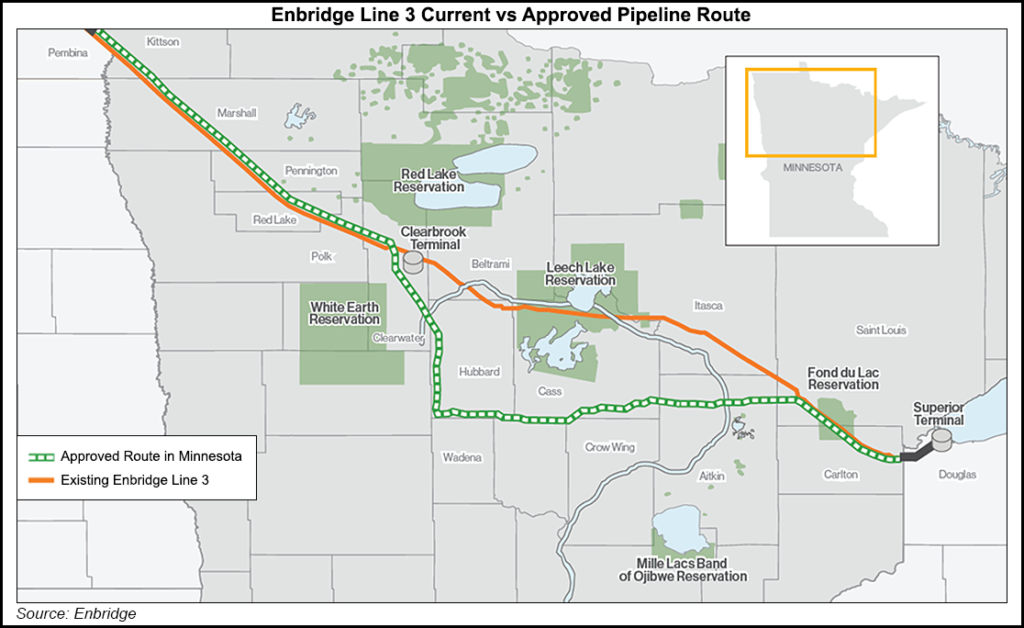Shale Daily | E&P | Infrastructure | NGI All News Access
Minnesota Grants Enbridge Permit to Advance Line 3 Construction
After a seven-month pause to finish a Minnesota environmental review, Enbridge Inc. regained a path to construction Monday for its contested Line 3 oil pipeline replacement project across Western Canada and the northern United States.

The Minnesota Public Utilities Commission (MPUC) granted Enbridge a need certificate and route permit after accepting a December finding by the state’s Department of Commerce that the new pipe would pose no significant threat to Lake Superior.
The Commerce Department expanded the Line 3 project’s environmental impact statement to obey an order last June by the Minnesota Court of Appeal. The verdict agreed with a protest lawsuit that 2018 Minnesota approvals needed to assess risks of an oil spill into the Great Lake’s watershed.
“After nearly five years of community engagement, environmental review, regulatory and legal review, it’s good to see the Line 3 replacement project move forward,” said Enbridge Vice President Vern Yu. “It is a $2.6 billion investment in the state’s critical energy infrastructure, but from the start the project has been about improving safety and reliability.”
The Line 3 pipe replacement would nearly double deliveries to 760,000 b/d and enable growth by Canada’s top natural gas user, Alberta thermal oilsands production. Safety restrictions limit flows in the original, 52-year-old pipe to 390,000 b/d.
Alberta Premier Jason Kenney described the new approval as “critically important” for Canada’s chief oil producing jurisdiction.
“When we get that extra shipment capacity we should be able to keep our energy market in balance,” he said.
Pipe replacement has been completed for about $4 billion in the 642-mile Canadian leg of Line 3 across Alberta, Saskatchewan and Manitoba. Oil started flowing through the renewed Canadian facilities in early December.
About 85% of Line 3’s 360-mile U.S. leg crosses Minnesota from a North Dakota inlet to a Wisconsin outlet. Replacing the aged pipe in all three states is forecast to cost about $2.9 billion.
The Minnesota environmental dispute to date has delayed the Line 3 replacement schedule by about a year. Enbridge estimated the Minnesota share of construction would take up to nine months, but no firm construction completion date is set.
“We now look forward to next steps on the project’s remaining permits,” Yu said.
The Line 3 renewal’s Minnesota foes vowed to fight approvals that remain to be granted and to consider court appeals against the latest decision by state regulators.
© 2024 Natural Gas Intelligence. All rights reserved.
ISSN © 2577-9877 | ISSN © 2158-8023 |
